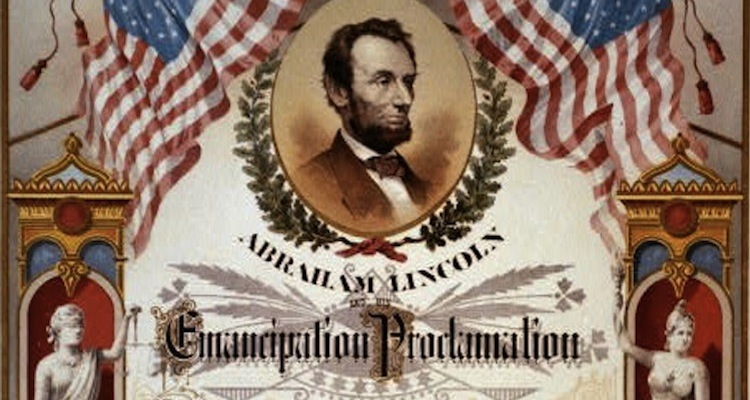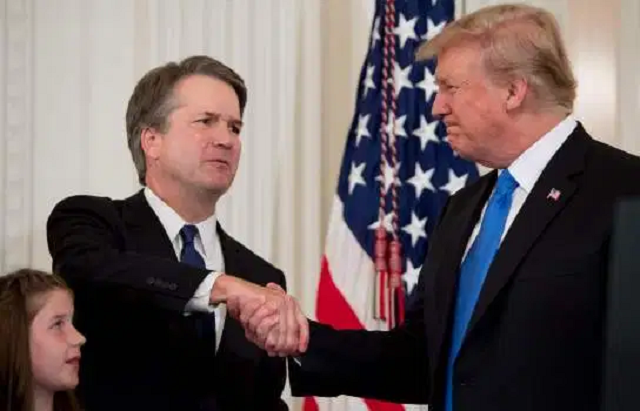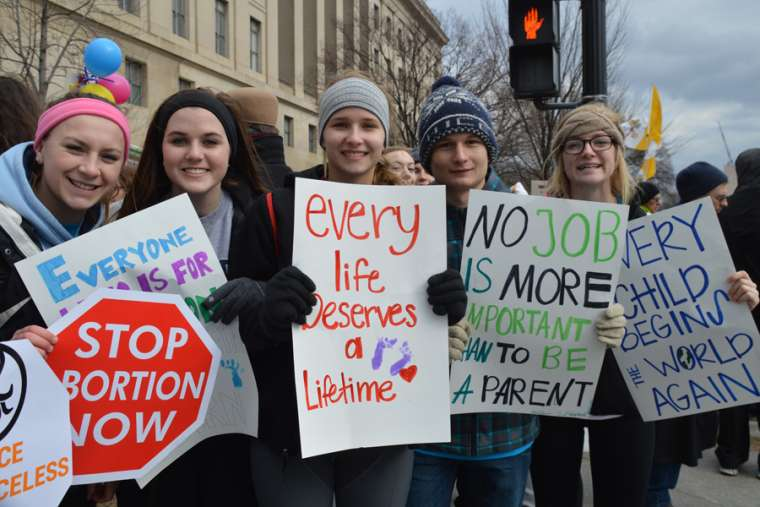March for Life: A New Great Awakening
 Challenging the notion of “settled law,” 207 members of Congress have filed an amicus brief urging the Supreme Court to reconsider its 1973 decision in Roe v Wade.On January 23, 1974, the First Anniversary of the Supreme Court’s decision in Roe v. Wade was marked by the first March for Life that drew 20,000 witnesses to Washington D.C. In 2019, the 46th anniversary drew over 200,000 Pro Life citizens to Washington and hundreds of thousands more in demonstrations across the nation.With the annual March for Life on the horizon, January 24, 2020, something interesting is happening in politics and the Pro Life Movement. On January 2, 2020 - the onset of a presidential election year - 207 members of Congress filed an amicus brief urging the U.S. Supreme Court to reconsider its 1973 majority decision in Roe v. Wade. Most signers are Republicans, but two - Rep. Collin Peterson of Minnesota and Rep. Daniel Lipinski of Illinois - are Democrats.In the practice of law, an “amicus” brief is an abbreviation for “amicus curiae,” Latin for “friend of the court.” A person who is not a party to a lawsuit, but has an interest or expertise in its subject matter, may petition or be invited to submit a legal argument in a case before the court. The amicus brief of the 207 members of Congress was prepared for a Supreme Court hearing on March 4, 2020 on the Constitutionality of a state abortion law.The 2014 Louisiana law requires that doctors at abortion clinics in that state have admitting privileges at local hospitals. The objection of abortion practitioners who have sued to block the Louisiana law is that it would force many of the state’s abortion clinics to close presenting an undue burden on a large fraction of women seeking abortions.In a 2-1 decision in 2018, a panel of judges for the Fifth Circuit Court of Appeals upheld the restrictions in the Louisiana law. In February, 2019, the Supreme Court ordered a stay in implementation of the law until it could hear arguments from both sides.In their amicus brief now before the Supreme Court, the 207 members of Congress added that a subsequent ruling in Planned Parenthood v. Casey should also be overturned. In Casey, the Court reaffirmed the central ruling of Roe v. Wade - that no undue burden on access to abortion should exist for a woman over 18 years of age prior to fetal viability. But the case also permitted states more freedom to regulate the abortion industry.The Congressional amicus brief urges the Court to reconsider the decisions in Roe v. Wade (1973) and Planned Parenthood v. Casey (1992) because courts have been unable to define what constitutes an “undue burden” on abortion access for a “large fraction” of women. In their brief, the 207 members of Congress state that the constitutional “right to an abortion” created in Roe v. Wade is unworkable and should thus be overturned.In the current case before the Supreme Court, more than a dozen Pro-Life groups have hailed the Congressional amicus brief and the work of Representative Steve Scalese of Louisiana and Senator Marsha Blackburn of Tennessee who spearheaded the brief. Catherine Glass Foster, President of Americans United for Life, published a statement about the brief:
Challenging the notion of “settled law,” 207 members of Congress have filed an amicus brief urging the Supreme Court to reconsider its 1973 decision in Roe v Wade.On January 23, 1974, the First Anniversary of the Supreme Court’s decision in Roe v. Wade was marked by the first March for Life that drew 20,000 witnesses to Washington D.C. In 2019, the 46th anniversary drew over 200,000 Pro Life citizens to Washington and hundreds of thousands more in demonstrations across the nation.With the annual March for Life on the horizon, January 24, 2020, something interesting is happening in politics and the Pro Life Movement. On January 2, 2020 - the onset of a presidential election year - 207 members of Congress filed an amicus brief urging the U.S. Supreme Court to reconsider its 1973 majority decision in Roe v. Wade. Most signers are Republicans, but two - Rep. Collin Peterson of Minnesota and Rep. Daniel Lipinski of Illinois - are Democrats.In the practice of law, an “amicus” brief is an abbreviation for “amicus curiae,” Latin for “friend of the court.” A person who is not a party to a lawsuit, but has an interest or expertise in its subject matter, may petition or be invited to submit a legal argument in a case before the court. The amicus brief of the 207 members of Congress was prepared for a Supreme Court hearing on March 4, 2020 on the Constitutionality of a state abortion law.The 2014 Louisiana law requires that doctors at abortion clinics in that state have admitting privileges at local hospitals. The objection of abortion practitioners who have sued to block the Louisiana law is that it would force many of the state’s abortion clinics to close presenting an undue burden on a large fraction of women seeking abortions.In a 2-1 decision in 2018, a panel of judges for the Fifth Circuit Court of Appeals upheld the restrictions in the Louisiana law. In February, 2019, the Supreme Court ordered a stay in implementation of the law until it could hear arguments from both sides.In their amicus brief now before the Supreme Court, the 207 members of Congress added that a subsequent ruling in Planned Parenthood v. Casey should also be overturned. In Casey, the Court reaffirmed the central ruling of Roe v. Wade - that no undue burden on access to abortion should exist for a woman over 18 years of age prior to fetal viability. But the case also permitted states more freedom to regulate the abortion industry.The Congressional amicus brief urges the Court to reconsider the decisions in Roe v. Wade (1973) and Planned Parenthood v. Casey (1992) because courts have been unable to define what constitutes an “undue burden” on abortion access for a “large fraction” of women. In their brief, the 207 members of Congress state that the constitutional “right to an abortion” created in Roe v. Wade is unworkable and should thus be overturned.In the current case before the Supreme Court, more than a dozen Pro-Life groups have hailed the Congressional amicus brief and the work of Representative Steve Scalese of Louisiana and Senator Marsha Blackburn of Tennessee who spearheaded the brief. Catherine Glass Foster, President of Americans United for Life, published a statement about the brief:
- “Clearly the 207 members of Congress who joined this brief care deeply about the health and safety of the American people and the ability of legislators to enact common sense law that protects women and children from the abuses perpetrated by the abortion industry.”
 THE NEXT GREAT AWAKENINGOver time, I have written a series of posts about some of those abuses and in support of the annual March for Life in Washington, D.C, and other Pro-Life events around the country. I will link to a few of the more important ones at the end of this post, but the most popular of these was also the most controversial. It was “Planned Parenthood: An American Horror Story.”That post was an analysis behind-the-scenes of the scripts of three very popular television series that emerged over the last decade. The background for all three of the TV series depicted some form of collapse of human civilization and the struggle of a remnant of humanity to survive and recover. Despite the liberal politics of unrestricted access to abortion, Hollywood somehow managed to tap into the deeper conscience of our culture to produce plots that reflect Pro-Life views.These views strongly resonated with a well-informed generation of younger viewers who made those television series the cultural hits that they were. That this was the result of a Hollywood effort is the irony of ironies. You will have to read “Planned Parenthood: An American Horror Story” to see what shows these were, how my analysis unfolded, and how to be ready for the next Great Awakening in America, the emergence of a Pro-Life generation.That makes sense. Most of the news media will either ignore or undermine the March for Life this month, but if you can catch some news clips of it, look at the participants and you will see what I mean. You will see far more women than men, and far younger demonstrators than older.There is a growing conscientious objection in our culture over the 62 million abortions performed in America since Roe v Wade sprang from the judicial activism of 1973. There is a growing sense that this has been the work of a moral apocalypse, a collapse of the Universal Declaration of Human Rights, first and foremost of which is the Right to Life.When Planned Parenthood v. Casey resulted in a 5-4 decision by the U.S. Supreme Court in 1993, Chief Justice Rehnquist and Justices Byron White, Antonin Scalia, and Clarence Thomas voted to overturn Roe v. Wade. Justice Anthony Kennedy, whose 2018 retirement resulted in the contentious nomination of Justice Brett Kavanaugh, was the most surprising vote. In affirming Roe v. Wade for the 5-4 majority, Justice Kennedy issued some reasoning that seemed to usher in the age of identity politics:
THE NEXT GREAT AWAKENINGOver time, I have written a series of posts about some of those abuses and in support of the annual March for Life in Washington, D.C, and other Pro-Life events around the country. I will link to a few of the more important ones at the end of this post, but the most popular of these was also the most controversial. It was “Planned Parenthood: An American Horror Story.”That post was an analysis behind-the-scenes of the scripts of three very popular television series that emerged over the last decade. The background for all three of the TV series depicted some form of collapse of human civilization and the struggle of a remnant of humanity to survive and recover. Despite the liberal politics of unrestricted access to abortion, Hollywood somehow managed to tap into the deeper conscience of our culture to produce plots that reflect Pro-Life views.These views strongly resonated with a well-informed generation of younger viewers who made those television series the cultural hits that they were. That this was the result of a Hollywood effort is the irony of ironies. You will have to read “Planned Parenthood: An American Horror Story” to see what shows these were, how my analysis unfolded, and how to be ready for the next Great Awakening in America, the emergence of a Pro-Life generation.That makes sense. Most of the news media will either ignore or undermine the March for Life this month, but if you can catch some news clips of it, look at the participants and you will see what I mean. You will see far more women than men, and far younger demonstrators than older.There is a growing conscientious objection in our culture over the 62 million abortions performed in America since Roe v Wade sprang from the judicial activism of 1973. There is a growing sense that this has been the work of a moral apocalypse, a collapse of the Universal Declaration of Human Rights, first and foremost of which is the Right to Life.When Planned Parenthood v. Casey resulted in a 5-4 decision by the U.S. Supreme Court in 1993, Chief Justice Rehnquist and Justices Byron White, Antonin Scalia, and Clarence Thomas voted to overturn Roe v. Wade. Justice Anthony Kennedy, whose 2018 retirement resulted in the contentious nomination of Justice Brett Kavanaugh, was the most surprising vote. In affirming Roe v. Wade for the 5-4 majority, Justice Kennedy issued some reasoning that seemed to usher in the age of identity politics:
- “These matters, involving the most intimate and personal choices a person may make in a lifetime, choices central to personal dignity and autonomy, are central to the liberty protected by the Fourteenth Amendment. At the heart of liberty is the right to define one’s own concept of existence, of meaning, of the universe, and of the mystery of human life.”
With this worldview, there is no longer a human community, no longer a defined ethic of life and death, a Ten Commandments, or even God. There is only me, and life itself is defined in terms of what is best for me. Roe v. Wade gave birth to cultural narcissism.There have been two movements in American history that came to be referred to as “Great Awakenings.” The first was a widespread revival of Evangelical Protestant religion in the American colonies which peaked in the early 1740s. It was sparked largely by itinerant Presbyterian preachers who traveled the Eastern colonies inviting converts to revival meetings. The First Great Awakening contributed to a sense of American national identity in the decades leading up to the American Revolution of 1776.A half century later, a Second Great Awakening swept the Northern states. Its new revivalists argued that America was in need of moral regeneration by dedicated Christians. They channeled their fervor into reforms they thought would eliminate evils in American society. The agenda of this Second Great Awakening included the rights of women and, foremost of all, the abolition of slavery. FROM SLAVERY TO A CULTURE OF DEATHIn 1829, African American abolitionist David Walker of Boston traveled the American South to witness firsthand the practice and conditions of slavery. He launched the Abolitionist movement as a central tenet of the Second Great Awakening with his “Appeal to the Citizen’s of the World.” Here is an excerpt:
FROM SLAVERY TO A CULTURE OF DEATHIn 1829, African American abolitionist David Walker of Boston traveled the American South to witness firsthand the practice and conditions of slavery. He launched the Abolitionist movement as a central tenet of the Second Great Awakening with his “Appeal to the Citizen’s of the World.” Here is an excerpt:
- “I must observe to my brethren that at the close of the first Revolution in this country, with Great Britain, there were but thirteen States in the Union. Now there are twenty-four, most of which are slave-holding States, and the whites are dragging us around in chains and in handcuffs to their new States and Territories to work their mines and farms, to enrich them and their children - and millions of them believing firmly that we being a little darker than they, were made by our Creator to be an inheritance to them and their children for ever - the same as a parcel of brutes.”
- “Are we MEN? I ask you, my brethren! Are we MEN? Did our Creator make us to be slaves to dust and ashes like ourselves? Are they not dying worms as well as we? Have they not to make their appearance before the tribunal of Heaven, to answer for the deeds done in the body, as well as we? Have we any other Master but Jesus Christ alone? Is He not their Master as well as ours? What right, then, have we to obey and call any other Master but Himself?”
As a result of the Second Great Awakening, Abraham Lincoln, America’s first Republican president, issued by Executive Order the Emancipation Proclamation on January 1, 1863, in the midst of the American Civil War. Lincoln declared all “slaves within any State, or designated part of a State... shall be henceforward and forever free.”What makes that Second Great Awakening so important is that it paved a course to the Third Great Awakening, the one I believe is now emerging - however slowly - in our national and global consciousness. It is our Awakening to the Sanctity of Life.Historians regard the Emancipation Proclamation to be one of the great state documents of American history. As a result of the Proclamation, the Republican Party became unified in principle and prestige on the global stage enabling it to hold power until 1884.After the outbreak of the Civil War, the slavery issue was made acute by the flight to Union lines of large numbers of slaves who volunteered to fight for their freedom and that of their fellow slaves. A strict application of established laws in slave states would have required the return of fugitive slaves to their Confederate “masters” and would have alienated the staunchest supporters of the Union cause in the North and abroad.On March 13, 1862, the federal government forbade all Union army officers from obeying laws to return fugitive slaves, thus annulling in effect the fugitive slave laws. On April 10, on Lincoln’s initiative, Congress declared the federal government would compensate slave owners who freed their slaves. All slaves in the District of Columbia were then freed by executive order.On June 19, 1862, Congress enacted a measure prohibiting slavery in United States territories, thus defying the Supreme Court decision in the Dred Scott case, which ruled that Congress was powerless to regulate slavery in the territories. This is of critical importance to the Pro-Life cause because the most vocal argument proposed in objection to revisiting Roe v. Wade is the notion that it is “settled law.” I raised this same argument in my post, “Senator Susan Collins Stokes the Embers of Civil War.” THE CRUCUFIXION OF A CATHOLIC NOMINEEI wrote that post because Senator Collins went on record to state her objection to the nomination of Brett Kavanaugh based on the notion that Roe v. Wade is “settled law:”
THE CRUCUFIXION OF A CATHOLIC NOMINEEI wrote that post because Senator Collins went on record to state her objection to the nomination of Brett Kavanaugh based on the notion that Roe v. Wade is “settled law:”
- “I would not support a nominee that demonstrated hostility to Roe v. Wade because that would mean to me that their judicial philosophy did not include respect for established decisions, established laws.”
I happen to like and respect Senator Susan Collins, a Republican U.S. Senator from Maine. Near the close of the national moment of shame into which the Senate confirmation hearings for Justice Brett Kavanaugh descended in 2018, Senator Collins took to the Senate floor with one of the finest, fairest addresses in modern political history. In acknowledgment of that fact, I wrote this brief commentary in The Wall Street Journal (Oct. 7, 2018):
- “Early in the nomination process for Justice Kavanaugh, I wrote a blog post critical of Senator Collins’ reasoning for why she may oppose him (See “Senator Susan Collins Stokes the Embers of Civil War”). I chided her for treating as untouchable a past Supreme Court decision as settled law when history reveals a number of court corrections to past decisions. My critique stands. But I was nonetheless stunned by her heroic, prophetic address before the Senate this week. Senator Collins has single-handedly restored the rule of law and a presumption of innocence to the American political mind in a time of moral panic.”
But my original point stands. Pro-Life advocates have a strong defense against claims that Roe v. Wade must stand because it is “settled law.” In Dred Scott v. Sanford in 1857 - the Supreme Court decision with which Roe v. Wade is most often compared - the U.S. Supreme Court in a split (5-4) decision penned by Chief Justice Roger Taney (a Catholic) ruled that Dred Scott, a former slave born into slavery who made his way to a free territory, must be returned to his “master” because neither he nor any other slave has standing to sue for his freedom.Justice Taney’s ruling went on to manufacture a Constitutional right to own slaves similar to Roe v. Wade’s Constitutional right to abortion. The “established decision” held that slavery itself was Constitutional and thus “A black man has no rights that a white man is bound to respect.”No reasonable person today could in good conscience apply the “settled law” objection to revisiting Dred Scott v. Sanford. And like its creation of a Constitutional right to own slaves, John Hart Ely, a liberal Constitutional law scholar and a Supreme Court clerk under Justice Earl Warren, wrote that Roe v. Wade could not be considered “settled law” for the same reason:
- “Roe v. Wade is not Constitutional law and doesn’t even pretend to be. The justices had not found a right to abortion in the Constitution. They had put it there.”
In 2019, the Democratic Attorneys General Association issued a directive that its members are to endorse only pro-choice attorney general candidates. The organization’s reasoning was simply that Roe v. Wade is “settled law.” It’s a good thing they were not around to defend Dred Scott v. Sanford.The evidence that Margaret Sanger founded Planned Parenthood in part, at least, for the purpose of promoting eugenics - selective racial breeding to control the African American population - may be manifest in today’s abortion statistics. African Americans represent 12.5 percent of the U.S. population, but more than 30 percent of U.S. abortions. [Editor’s note: See the eye-opening work of Pastor Clenard Howard Childress, Jr. at blackgenocide.org.]In some areas, African American abortions exceed the African American birth rate. This is a grave injustice to those noble ancestors who fought long and hard to secure a right to life, liberty, and the pursuit of happiness in America.The March for Life has many heroes and, sadly, even some martyrs. I invite all Pro-Life advocates to join in support of David Daleiden whose citizen journalism exposed Planned Parenthood and awakened Congress and the nation. It has also resulted in criminal charges and his being found liable in a multi-million dollar libel suit by Planned Parenthood in a highly biased San Francisco court.I urge you to learn of his heroism and the justice system’s shame in an eye-popping article by The National Catholic Register’s Joan Frawley Desmond: “David and Abortion’s Goliath” (NCRegister, Dec. 8-21, 2019).You might want to pray for David Daleiden, for Attorney Peter Breen and the cultural heroes at the Thomas More Society who are defending him, and for the Center for Medical Progress which sponsored his brave exposure of Planned Parenthood. And please, turn your attention to the March for Life this month.
+ + +
Editor’s Note: Please share this important post on social media to the extent that you can. You will not see this reflected in most of the mainstream media. You may also wish to read and share these other Pro-Life posts from Father Gordon MacRae and These Stone Walls:
- Planned Parenthood: An American Horror Story
- Science Makes a Case for God and Respect for Life
- The March for Life and the People on the Planet Next Door
- Honoring Fr Norman Weslin as Light Finally Dawns Upon Notre Dame
